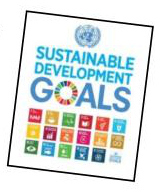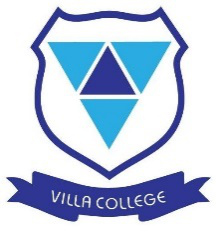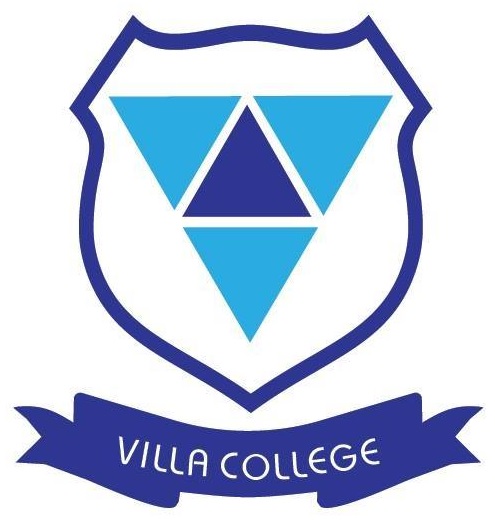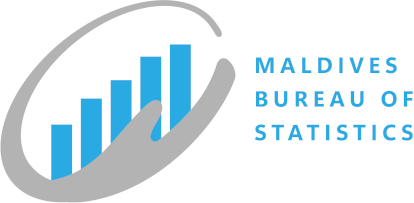
31st International Input-Output Association Conference
and
13th Edition of the International School of I-O Analysis
6th - 11th July 2025, Malé, the capital city of the Maldives
|
|
Sustainability
Introduction
Villa College is committed to sustainability, embedding environmentally responsible practices in governance, infrastructure, operations and academic programs. Our dedication to sustainability is reflected in institutional policies, research, and leadership initiatives that foster a culture of environmental stewardship among students, faculty, and staff. There is no greenwashing. |

|
Governance and institutional commitment

|
Sustainability is a core pillar of Villa College’s strategic vision, shaping policies, operations and academic programs to promote environmental responsibility. Villa College actively engages in green initiatives, ensuring that our campuses operate in an eco-friendly and energy-efficient manner. |
Villa College as a ‘Green Campus’ Hub

Villa College has been leading the way in supporting environmental causes long before it became a trend in the Maldives. The scenic beauty surrounding Villa College QI campus is appreciated by students and anyone who loves flora and fauna. The greenery provides a unique opportunity to get closer to nature and relax. These experiences are rare, especially in the capital, Male'.
- Villa College Qasim Ibrahim (QI) campus stands as a testament to its dedication to sustainability and creating a pleasant atmosphere for its students and staff. With its well-maintained orchid gardens, green spaces, and efforts to promote sustainability, QI campus serves as an inspiration for others in creating harmonious and eco-friendly educational environments.
- Villa College leads in environmental sustainability, implementing the Solar Energy Project to reduce dependence on fossil fuels. Villa College received the first Net-Metering approval from the State Electrical Company, marking a significant milestone in sustainable energy and was granted the first Carbon Credits in July 2019 for successfully installing solar PV panels at the QI Campus.
- The use of solar power has enabled Villa College to save over 51.5% on electricity consumption, reducing reliance on fossil fuels and conserving over 74,000 litres of diesel annually.
- Villa College buildings also utilise LED lighting, energy-efficient appliances and natural ventilation and lighting systems to minimise energy consumption and carbon emissions. We actively explore ways to expand our use of renewable energy to achieve greater sustainability.
Waste management and plastic-free Campus
- Villa College has proactively taken steps towards environmental sustainability by implementing a no single-use plastic policy on all its campuses. The college has introduced various alternatives including water filter systems and reusable bottles to replace single-use plastic. These measures aim to reduce plastic waste and foster environmentally responsible behaviour among both staff and students.
- A comprehensive waste segregation and recycling program is in place, with designated disposal bins for paper, plastic, glass and organic waste.
- Awareness initiatives encourage responsible waste disposal and promote recycling habits among students and staff.
Catering and food sustainability
Villa College integrates sustainability into catering practices by prioritising environmentally friendly and locally sourced food options.
- Events and conferences offer diverse dietary options including vegetarian and Halal meals.
- The college prioritises locally sourced and seasonal ingredients thereby reducing the carbon footprint of transportation of food from abroad.
- Measures to minimise food waste include working with vendors to optimise portion sizes and donating surplus food to support staff.
- Water refill stations are available across campuses, eliminating the need for bottled water and encouraging the use of biodegradable or reusable alternatives.
Sustainable transport and mobility
- Villa College works towards integrating low-emission transport solutions for inter-campus travel and events.
- The college’s central location in Malé ensures easy access to accommodations and amenities, reducing the need for additional transportation and costs.
Sustainable procurement and finance
- The college adheres to a Sustainability Financing and Procurement Policy ensuring that purchases align with ethical sourcing, environmental sustainability and fair-trade principles.
- Villa College collaborates with local social enterprises and SMEs that support sustainable business practices.
- Procurement processes prioritise eco-friendly products, recycled materials and responsible supply chain management.
Sustainable conference and events
Villa College is dedicated to organising eco-conscious events, integrating sustainability in all aspects of conference planning and execution.
- Aim for paperless conferences utilising as much as possible digital platforms for schedules, materials and communications to minimise paper usage.
- Eco-friendly printing when printing is necessary, the college employs sustainable printing practices.
- Sustainable giveaways such as conference materials and gifts are carefully selected based on sustainability criteria ensuring they are reusable, recyclable or biodegradable.
- Social responsibility initiatives whereby attendees are given opportunities to contribute to local environmental projects, educational scholarships and conservation programs in the Maldives. For this Conference, joint with the IIOA, there will be a voluntary environmental contribution for green causes on registration.
- Local business partnerships whereby Villa College collaborates with vendors and service providers that uphold sustainable and ethical standards.

|

|

|

|